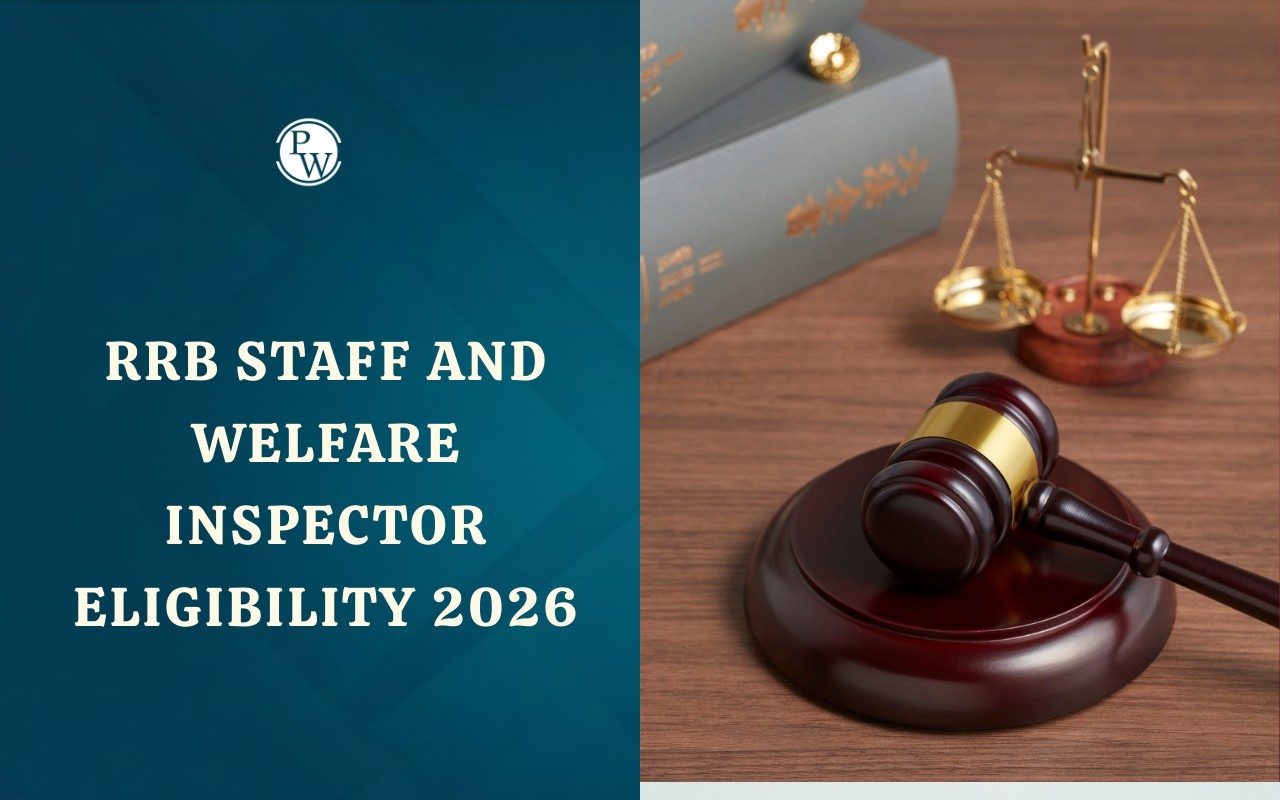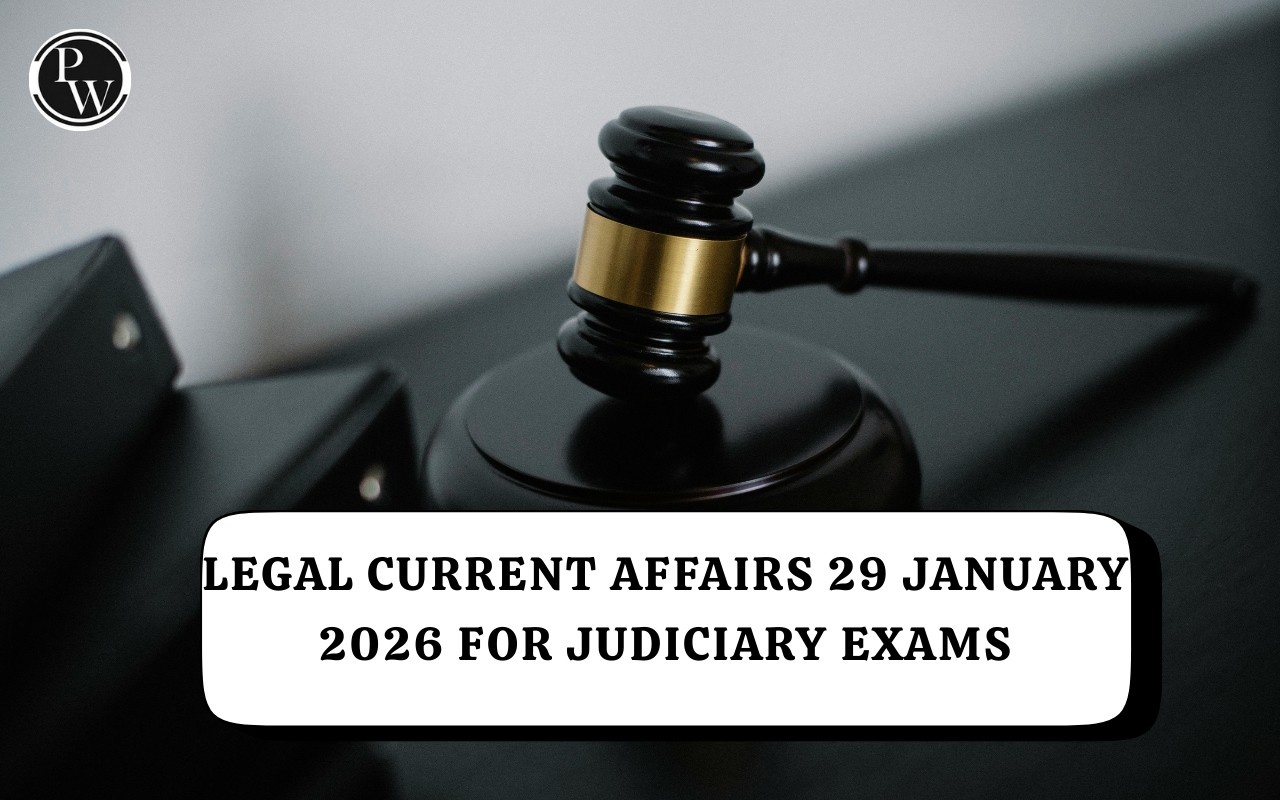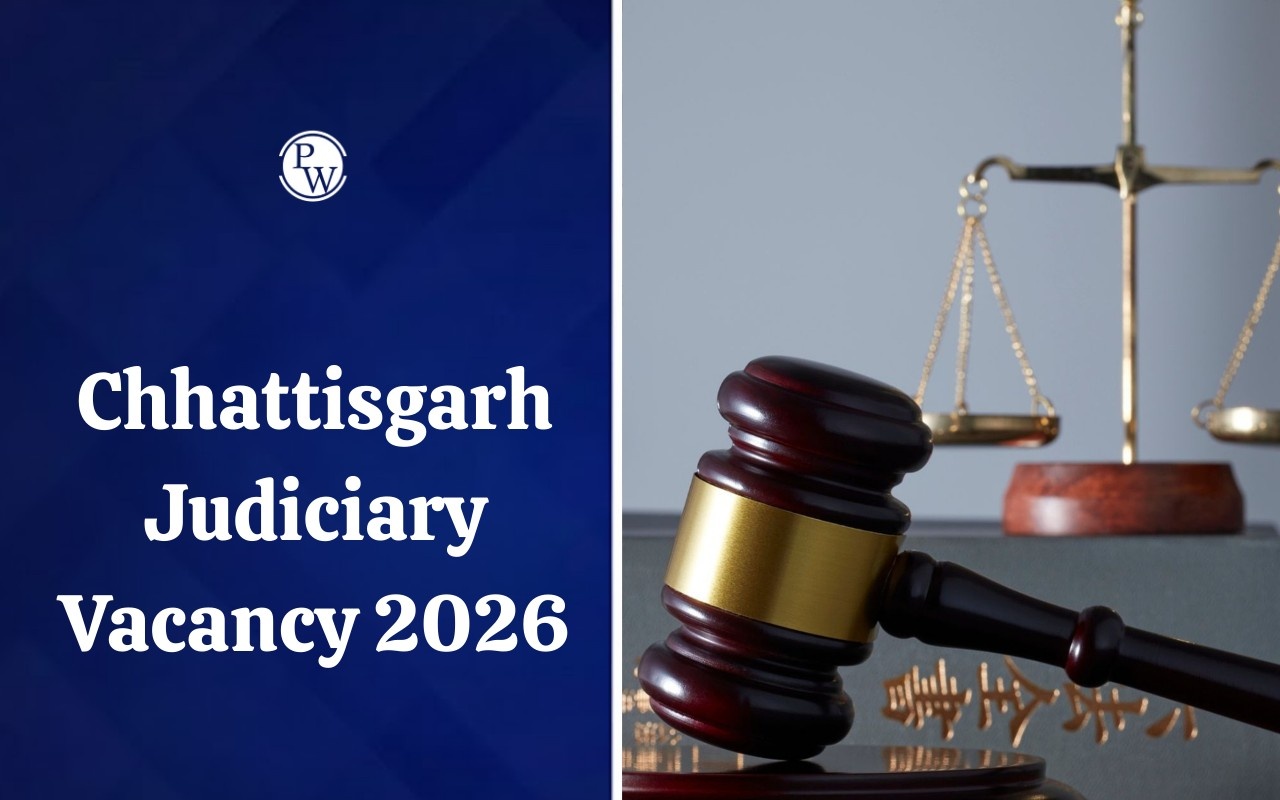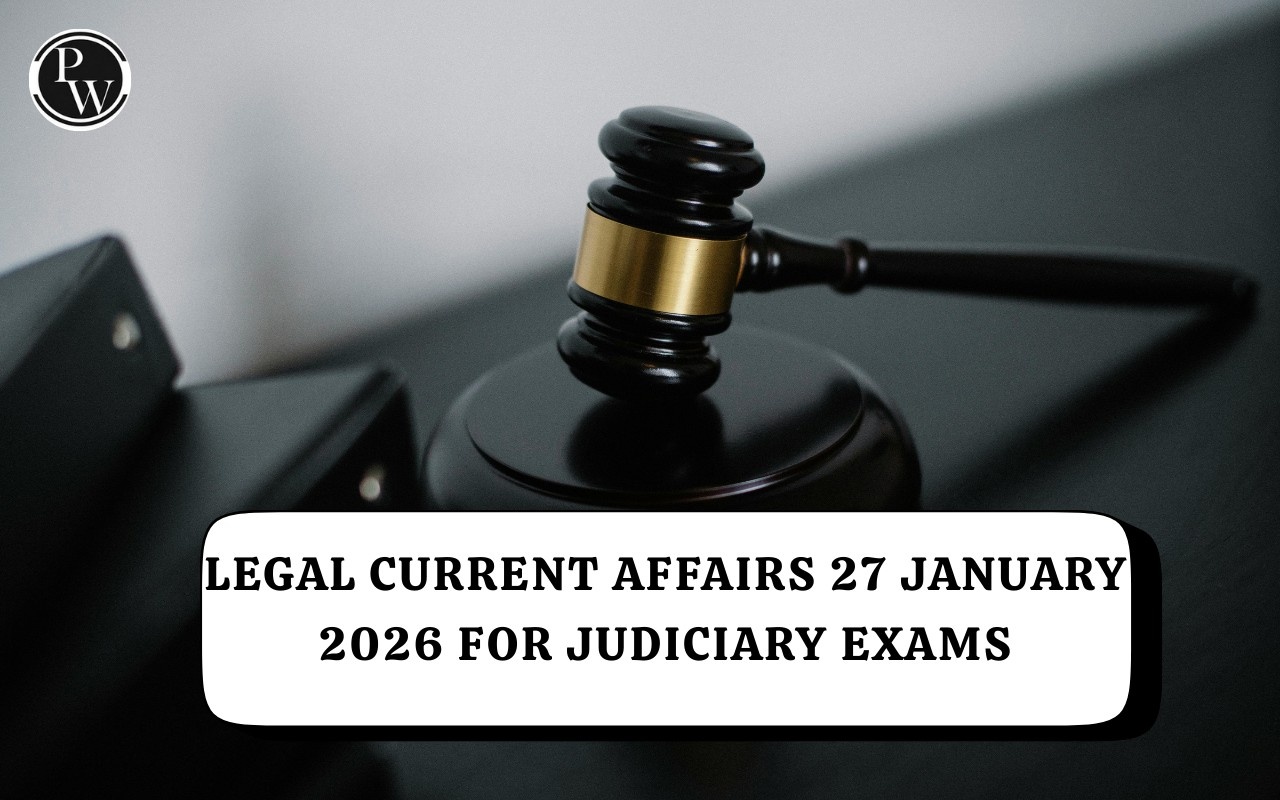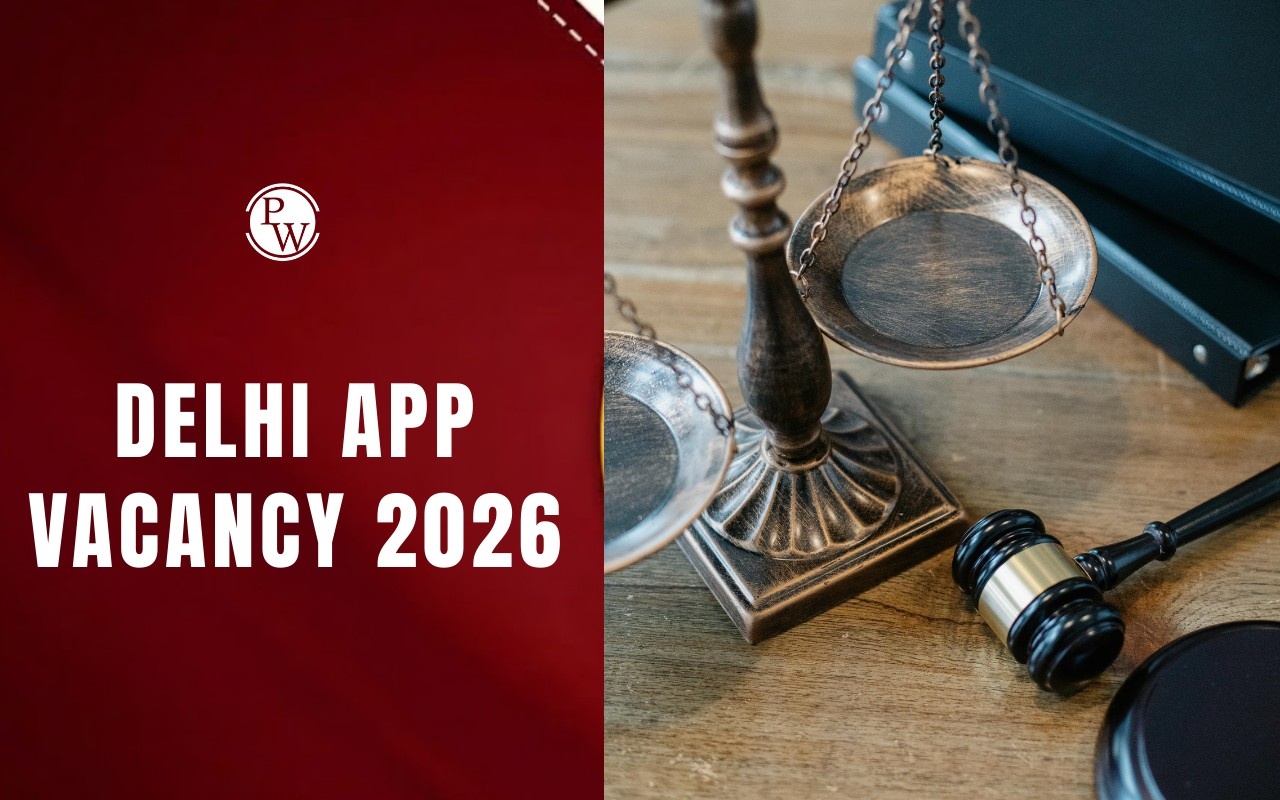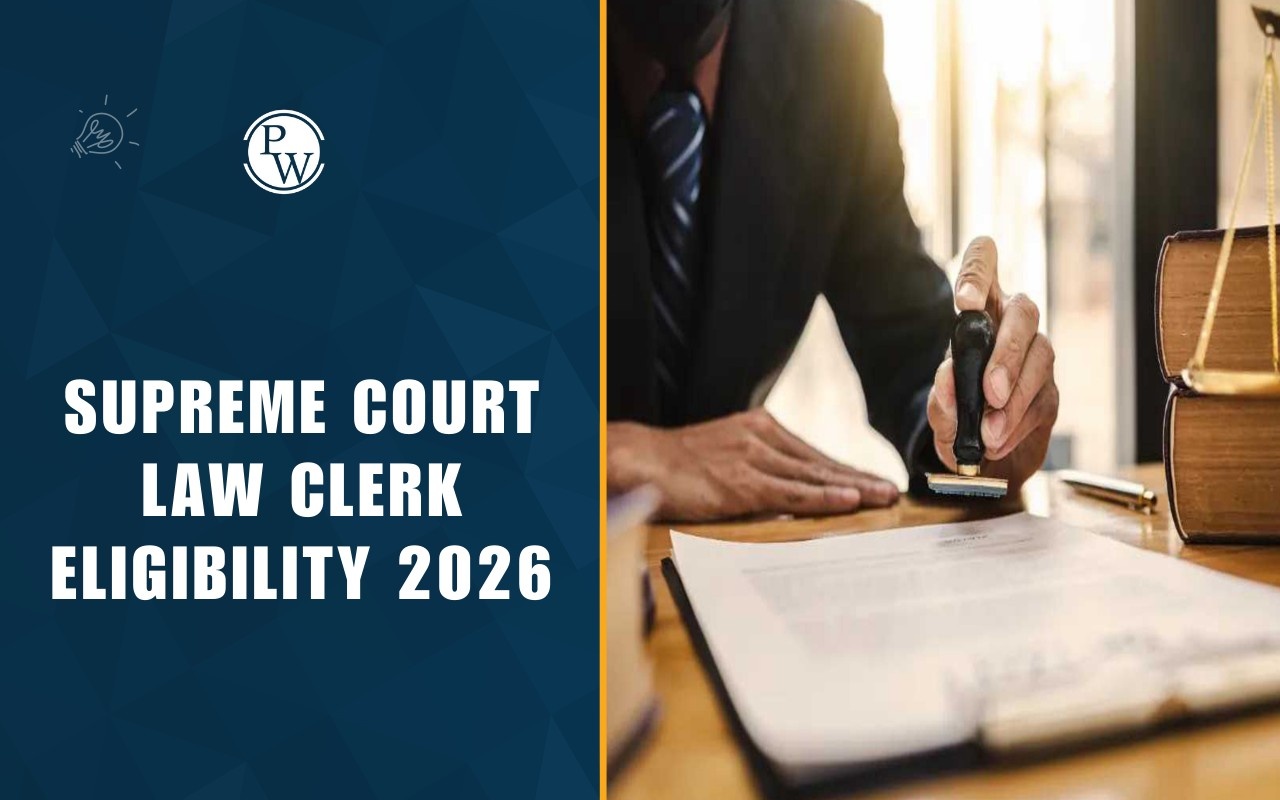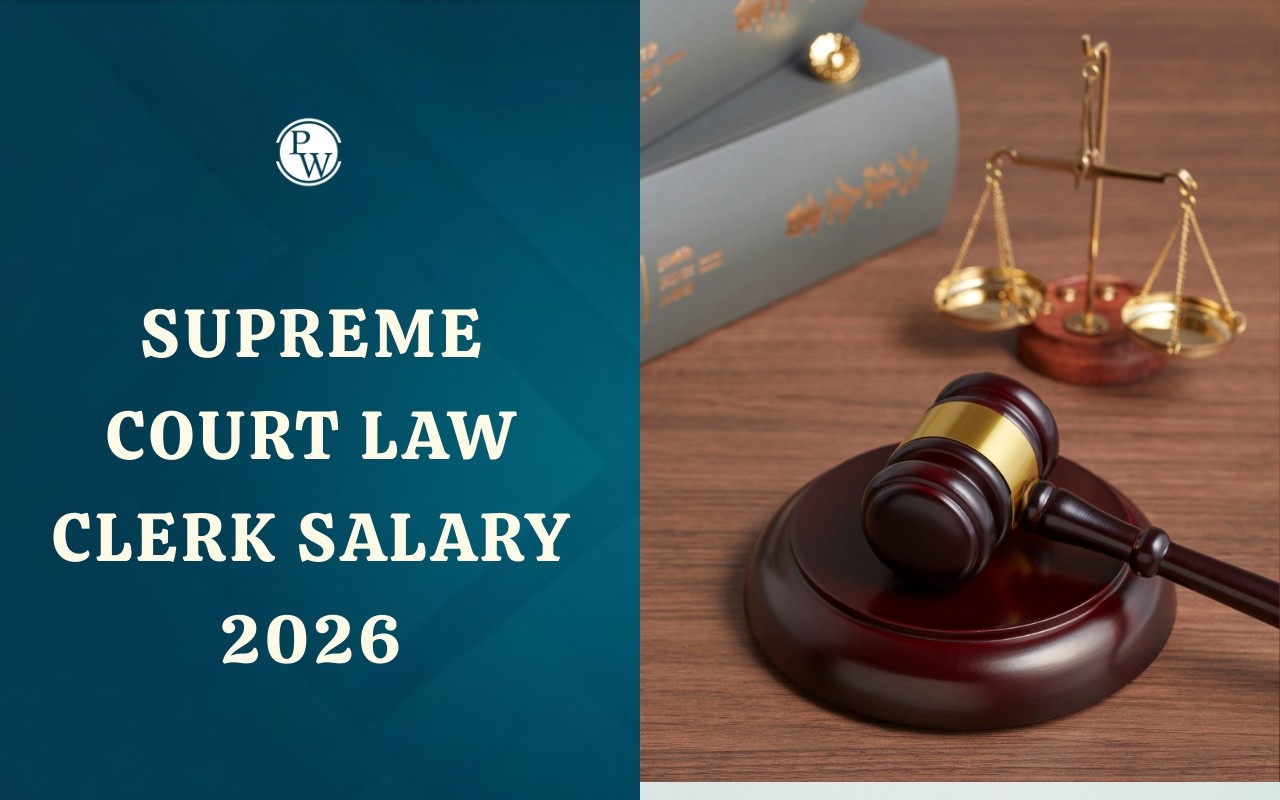
Delhi Higher Judiciary Syllabus 2025 is a comprehensive framework that summarises the subjects and topics for the examination conducted by the Delhi High Court for the recruitment of judicial officers. Aspiring candidates who wish to act as judges in the Delhi High Court must follow this syllabus to prepare systematically for the exam. The Delhi Higher Judiciary Syllabus 2025 is divided into two main stages: the Preliminary Exam and the Mains Exam, followed by a Viva Voce. This guidepost will provide an overview of the Delhi Higher Judiciary Syllabus 2025, the exam pattern, and the preparation tips for candidates aiming to clear the exam.
Delhi Higher Judiciary Syllabus Overview
The Delhi Higher Judiciary Syllabus 2025 is designed to assess candidates' legal knowledge, analytical ability, and writing skills. The selection process is divided into three stages:- Preliminary Exam – Objective-based.
- Mains Exam – Descriptive-based.
- Viva Voce – Personal Interview.
Delhi Higher Judiciary Syllabus for Prelims
The Delhi Higher Judiciary Prelims Syllabus 2025 is focused on multiple-choice questions that assess candidates’ general knowledge, current affairs, and legal knowledge. The subjects covered in the Preliminary Exam include:- General Knowledge
- Current Affairs
- English Language
-
Legal Acts and Provisions:
- The Constitution of India
- The Indian Evidence Act, 1872, and Bharatiya Sakshya Adhiniyam, 2023
- The Limitation Act, 1963
- The Code of Civil Procedure, 1908
- The Code of Criminal Procedure, 1973, and Bharatiya Nagrik Suraksha Sanhita, 2023
- The Indian Penal Code, 1860, and Bharatiya Nyay Sanhita, 2023
- The Indian Contract Act, 1872
- The Indian Partnership Act, 1932
- The Arbitration and Conciliation Act, 1996
- The Specific Relief Act, 1963
- The Transfer of Property Act, 1882
- The Sale of Goods Act, 1930
- The Negotiable Instruments Act, 1881
- The Indian Succession Act, 1925
- The Hindu Succession Act, 1956
- The Prevention of Corruption Act, 1988
- The Protection of Children from Sexual Offences Act (POCSO Act), 2012
- The Recovery of Debts and Bankruptcy Act (DRT Act), 1993
- The Securitisation and Reconstruction of Financial Assets and Enforcement of Security Interest Act (SARFAESI Act), 2002
- The Motor Vehicles Act, 1988
- The Industrial Disputes Act, 1947
- The Payment of Wages Act, 1936
- The Employee’s Compensation Act, 1923
- The Minimum Wages Act, 1948
- The Factories Act, 1948
- The Payment of Gratuity Act, 1972
- The Juvenile Justice (Care and Protection of Children) Act, 2015
- The Commercial Courts Act, 2015
- The Provident Funds Act, 1925
- The Information Technology Act (IT Act), 2000
- The Trade Marks Act, 1999
- The Copyright Act, 1957
- The Patents Act, 1970
- The Designs Act, 2000
Preliminary Exam Pattern
| Sections | Maximum Questions | Maximum Marks | Duration |
| General Knowledge | 150 | 150 | 2 Hours |
| Current Affairs | |||
| English Language | |||
| Questions relating to Laws and Acts | |||
| Total | 150 Questions | 150 Marks |
- Number of Questions : 150
- Maximum Marks : 150
- Duration : 2 hours
- Negative Marking : 0.25 marks for each incorrect answer
Delhi Higher Judiciary Syllabus for Mains
The Delhi Higher Judiciary Mains Syllabus 2025 consists of three main papers:Law-I
This paper covers fundamental constitutional law and civil law topics, such as:- The Constitution of India
- The Code of Civil Procedure (CPC), 1908
- The Indian Evidence Act, 1872
- The Limitation Act, 1963
- The Registration Act, 1908
- The Commercial Courts Act, 2015
Law-II
This paper includes topics related to family law and property law, such as:- The Indian Contract Act, 1872
- The Hindu Marriage Act, 1955
- The Hindu Succession Act, 1956
- The Indian Succession Act, 1925
- The Special Marriage Act, 1954
- The Recovery of Debts and Bankruptcy Act, 1993
Law-III
This paper focuses on criminal law, including:- The Indian Penal Code (IPC), 1860
- The Code of Criminal Procedure (CrPC), 1973
- The Prevention of Corruption Act, 1988
- The Protection of Women from Domestic Violence Act, 2005
- The Prevention of Money Laundering Act, 2002
Mains Exam Pattern
| Sections | Maximum Marks | Duration |
| General Knowledge and Language | 150 | 2 Hours |
| Law-I | 200 | 3 Hours |
| Law-II | 200 | 3 Hours |
| Law-III | 200 | 3 Hours |
| Total | 750 Marks | 11 Hours |
- General Knowledge and Language : 150 marks (2 hours)
- Law-I : 200 marks (3 hours)
- Law-II : 200 marks (3 hours)
- Law-III : 200 marks (3 hours)
Viva-Voce (Interview)
The final stage of the selection process is the Viva-Voce or personal interview of 250 marks, which assesses the candidate’s personality, communication skills, legal acumen, and suitability for the judicial role. Candidates should be well-versed in current legal issues, landmark judgments, and their practical implications.Delhi Higher Judiciary Syllabus 2025 PDF Download
For candidates looking for a convenient way to access the Delhi Higher Judiciary Syllabus 2025, a PDF version of the syllabus is highly useful, which contains a detailed breakdown of the syllabus for Prelims, Mains, and Viva-Voce stages. To download the Delhi Higher Judiciary Syllabus 2025 PDF, visit the official Delhi High Court website or directly get it downloaded from the link below.| Delhi Higher Judiciary Syllabus 2025 PDF Download |
| Click Here |
Delhi Higher Judiciary Syllabus Preparation Books
Selecting the right study material is essential for effective preparation. Below is a list of recommended books for the Delhi Higher Judiciary Syllabus 2025:-
For Substantive Laws
- "Indian Contract Act" by Avtar Singh
- "Indian Penal Code" by Ratanlal and Dhirajlal
- "Constitution of India" by V.N. Shukla
-
For Procedural Laws
- "Code of Civil Procedure" by C.K. Takwani
- "Code of Criminal Procedure" by R.V. Kelkar
- "Indian Evidence Act" by Batuk Lal
-
For General Knowledge
- Lucent’s General Knowledge
- Newspapers like The Hindu and Indian Express
-
For Language Proficiency
- Wren & Martin’s English Grammar
- Previous years’ question papers for essay and précis writing practice
Delhi Higher Judiciary Syllabus Preparation Tips
Effective preparation for the Delhi Higher Judiciary Syllabus 2025 requires a strategic approach. Here are some valuable tips:- Understand the Syllabus Thoroughly: Begin by breaking down the syllabus for prelims and mains. Focus on high-priority topics and allocate time accordingly.
- Create a Study Plan: Divide your preparation time among substantive laws, procedural laws, general knowledge, and language skills. Set weekly and monthly goals.
- Practice Regularly: Solve previous years’ question papers and take mock tests to improve accuracy and time management.
- Stay Updated: Regularly read newspapers and legal journals to stay abreast of recent developments in law and current affairs.
- Revise Consistently: Revisit important topics multiple times to ensure retention and clarity.
- Focus on Writing Skills: Practice judgment writing, essay writing, and translation to excel in the Mains Examination.
- Seek Guidance: Enroll in coaching programs or online courses, if necessary, to gain expert insights and mentorship.
Delhi Higher Judiciary Syllabus 2025 FAQs
Q1. What is the Delhi Higher Judiciary Syllabus?
Ans. The syllabus covers substantive and procedural laws, general knowledge, language skills, and judgment writing across prelims, mains, and interview stages.
Q2. What are the key topics in the Delhi Higher Judiciary Syllabus for prelims?
Ans. Key topics include the Indian Penal Code, Indian Evidence Act, Constitution, and general knowledge, with an emphasis on objective-type questions.
Q3. How is the Delhi Higher Judiciary Syllabus for mains different from prelims?
Ans. The mains syllabus is descriptive, focusing on civil, criminal, and constitutional law, along with essay writing, translation, and judgment drafting.
Q4. Which books are best for Delhi Higher Judiciary Syllabus preparation?
Ans. Books like Avtar Singh’s Indian Contract Act, Ratanlal’s IPC, Lucent’s GK, and Wren & Martin’s Grammar are highly recommended for comprehensive preparation.
Q.5 What are some effective tips for preparing the Delhi Higher Judiciary Syllabus for mains?
Ans. Focus on writing skills, practice judgment drafting, revise substantive laws, and regularly attempt mock papers to enhance performance.
🔥 Trending Blogs
Talk to a counsellorHave doubts? Our support team will be happy to assist you!

Check out these Related Articles
Free Learning Resources
PW Books
Notes (Class 10-12)
PW Study Materials
Notes (Class 6-9)
Ncert Solutions
Govt Exams
Class 6th to 12th Online Courses
Govt Job Exams Courses
UPSC Coaching
Defence Exam Coaching
Gate Exam Coaching
Other Exams
Know about Physics Wallah
Physics Wallah is an Indian edtech platform that provides accessible & comprehensive learning experiences to students from Class 6th to postgraduate level. We also provide extensive NCERT solutions, sample paper, NEET, JEE Mains, BITSAT previous year papers & more such resources to students. Physics Wallah also caters to over 3.5 million registered students and over 78 lakh+ Youtube subscribers with 4.8 rating on its app.
We Stand Out because
We provide students with intensive courses with India’s qualified & experienced faculties & mentors. PW strives to make the learning experience comprehensive and accessible for students of all sections of society. We believe in empowering every single student who couldn't dream of a good career in engineering and medical field earlier.
Our Key Focus Areas
Physics Wallah's main focus is to make the learning experience as economical as possible for all students. With our affordable courses like Lakshya, Udaan and Arjuna and many others, we have been able to provide a platform for lakhs of aspirants. From providing Chemistry, Maths, Physics formula to giving e-books of eminent authors like RD Sharma, RS Aggarwal and Lakhmir Singh, PW focuses on every single student's need for preparation.
What Makes Us Different
Physics Wallah strives to develop a comprehensive pedagogical structure for students, where they get a state-of-the-art learning experience with study material and resources. Apart from catering students preparing for JEE Mains and NEET, PW also provides study material for each state board like Uttar Pradesh, Bihar, and others
Copyright © 2026 Physicswallah Limited All rights reserved.
